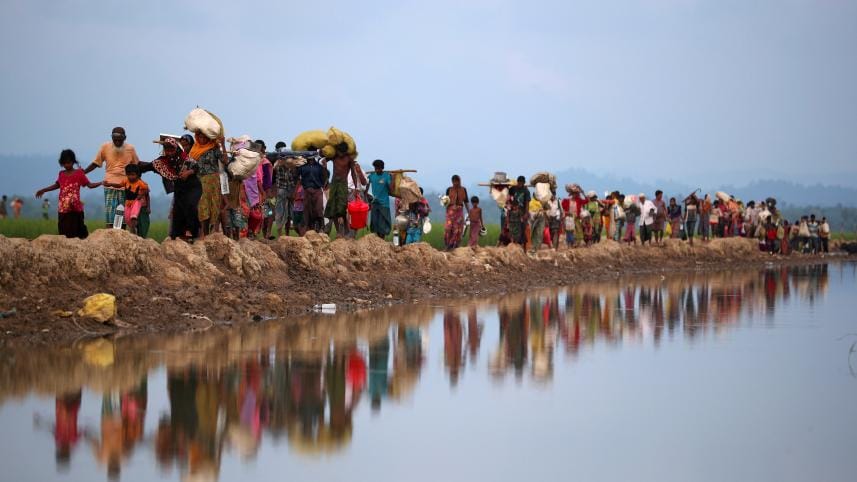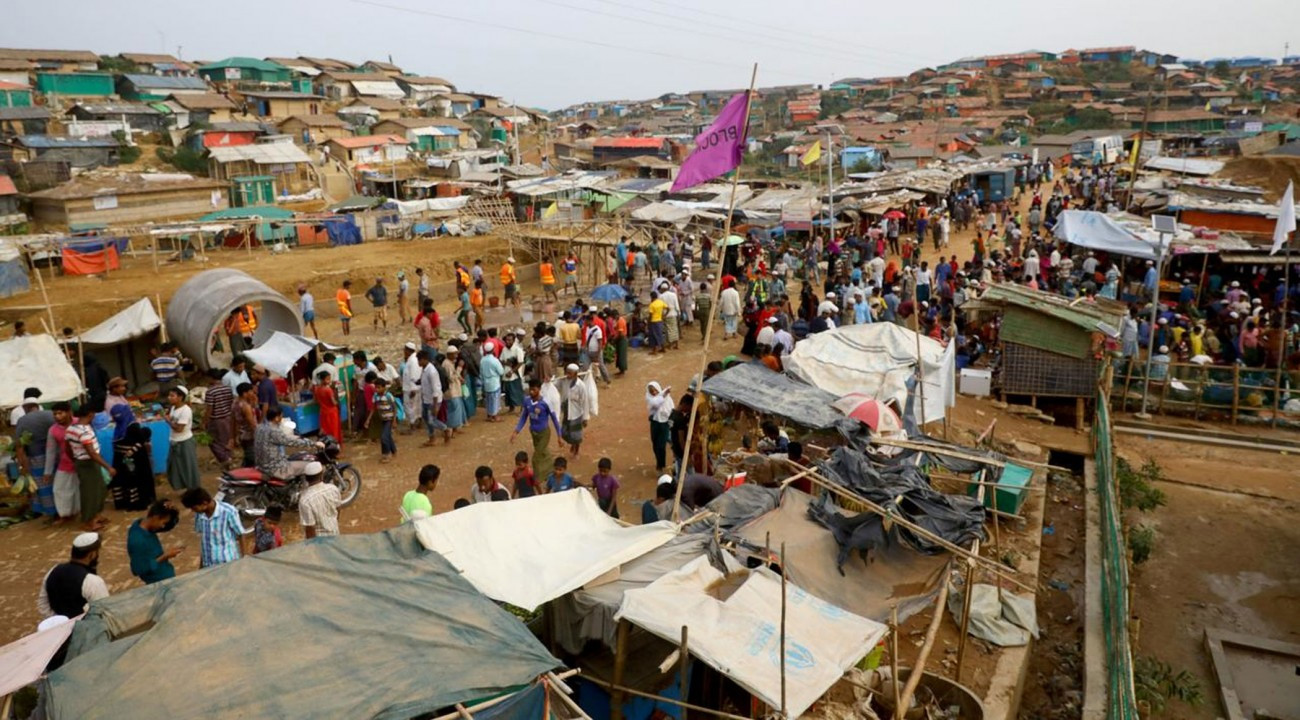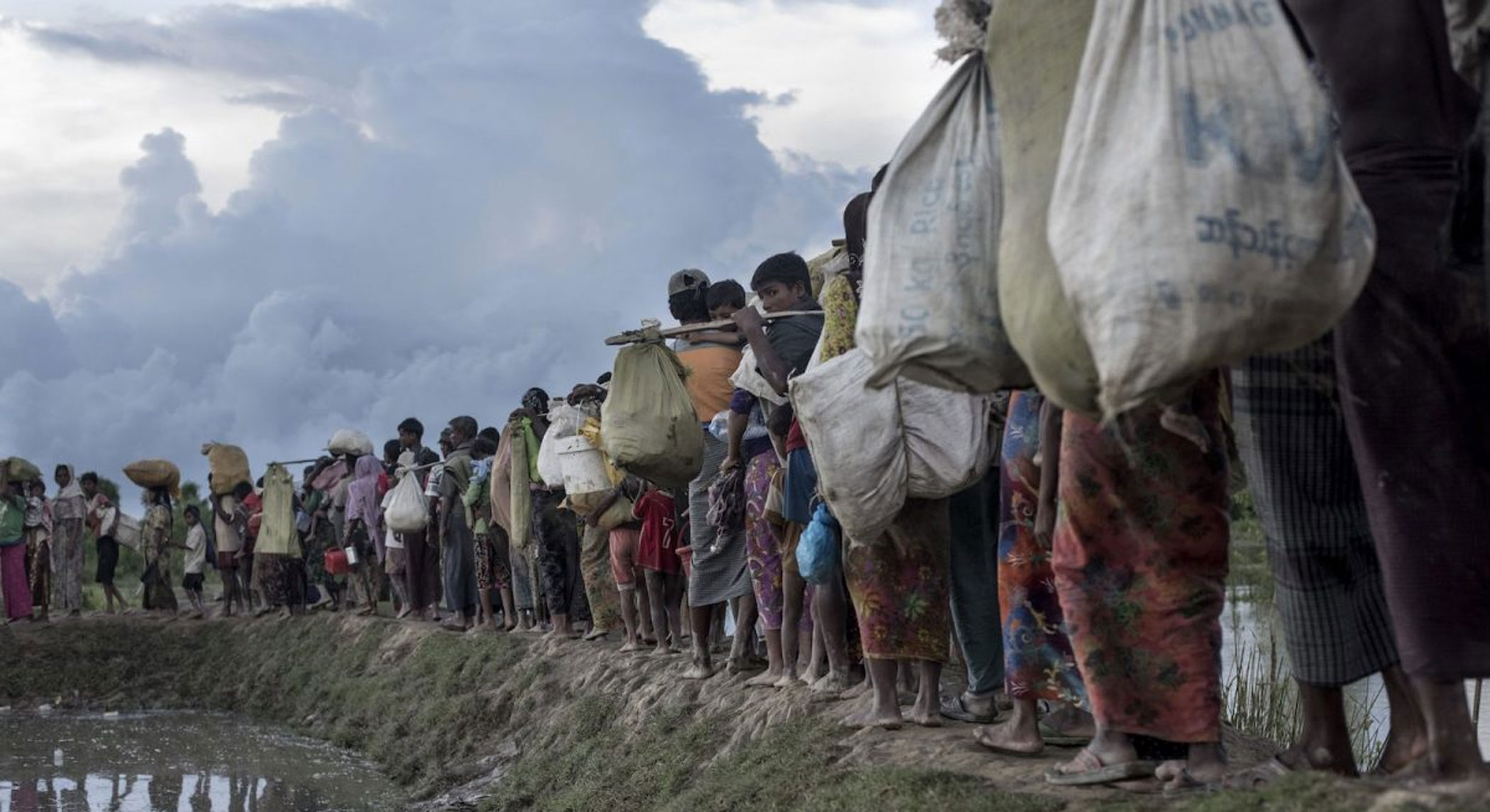Will the UN chief’s visit put the focus back on the Rohingya issue?

UN Secretary-General António Guterres's ongoing visit to Bangladesh has given us an opportunity to explore international dimensions to our national crises. An editorial in this daily shared optimism over finding a lasting solution to the influx of more than 1.1 million Rohingya refugees into our country from Myanmar. Perhaps Friday's iftar with the refugees in the camps in Cox's Bazar would further compel the UN chief to resolve the crisis and reconsider their actions.
The Rohingya refugees in the Cox's Bazar camps are about to face a situation worse than they have been enduring. Funding shortfalls have prompted the UN World Food Programme (WFP) to halve monthly food rations for Rohingya refugees in Bangladesh—from $12.50 per person to just $6—from next month. In real terms, $6 a month is about Tk 24 a day—not even enough for a banana and an egg. Bangladesh's recent economic health card is not promising enough to suggest that the host country can bear the burden of these stateless people for a long time without any international assistance. The funding cut is likely to lead to malnutrition, which carries far more dangerous implications. Rohingya leaders and aid workers have already voiced their concerns that the despair is likely to feed militancy.
We have already seen reports of thousands of refugees who, frustrated by poverty, idleness and insecurity, have become prone to armed struggle. A Reuters investigation last year revealed that the promise of income or purpose has drawn many disillusioned young men, leading to the recruitment of 3,000 to 5,000 Rohingya fighters from the refugee camps. Some even joined factions aligned with their former persecutors to fight ethnic rebels, while others engaged in gang violence within the camps. Officials stationed at the Rohingya camps expressed their helplessness, as they know more than anyone the dire consequences of the fund cuts. It's uncertain whether the impact of hunger will soon transcend beyond health and affect stability and peace.
Any immediate solution to the Rohingya crisis is unlikely because of the slow nature of the judicial process. The Gambia, backed by the Organisation of Islamic Cooperation (OIC), filed the Rohingya genocide case at the International Court of Justice (ICJ) in 2019, holding Myanmar accountable for the 2017 ethnic cleansing. The ICJ has imposed some provisional measures, but the progress has been painstakingly slow due to Myanmar's legal delays. Substantive arguments began in late 2023 when several nations intervened as the idea of genocide concerned them. Bangladesh strategically refrained from any formal involvement, preferring diplomatic solutions through China and the Association of Southeast Asian Nations (ASEAN), for instance. The case is important to keep the global optics on the Rohingya crisis, and we will eventually need all the diplomatic efforts as well as action from the UN Security Council for justice to be delivered. Without sustained international pressure, the Rohingya risk becoming a forgotten crisis, overshadowed by other global events.
The attempts of the Office of the UN High Commissioner for Refugees (UNHCR) for Rohingya repatriation have seen hardly any success. The lack of credibility and fund shortage will further exacerbate the situation on the Bangladesh side. This will only add to the security concerns mentioned earlier. A UK government report shows that many of the refugees have fallen prey to human trafficking as they try to leave the country, often using fake Bangladeshi IDs. The relaxation of police verification for obtaining national IDs has made it easier to abuse the system for the refugees. The identification may either help them assimilate into the mainstream Bangladeshi society or explore overseas travels through criminal syndicates. The lack of bare minimum food funds, if unchecked, can have a ripple effect.
We hope that the UN secretary-general's iftar at the Rohingya camps will help him adopt a balanced role, learning from the experience of fund and food shortages in Gaza and their domino effect. The UN must facilitate not only humanitarian aid but also seek sustainable solutions, ensuring refugee rights, upholding community concerns, and pressuring Myanmar for meaningful refugee repatriation. We expect the UN in a more balanced role to remain a credible actor in resolving one of the most prolonged refugee crises in recent history and their geopolitical atrophies.
Dr Shamsad Mortuza is professor of English at Dhaka University.
Views expressed in this article are the author's own.
Follow The Daily Star Opinion on Facebook for the latest opinions, commentaries and analyses by experts and professionals. To contribute your article or letter to The Daily Star Opinion, see our guidelines for submission.




 For all latest news, follow The Daily Star's Google News channel.
For all latest news, follow The Daily Star's Google News channel. 


Comments